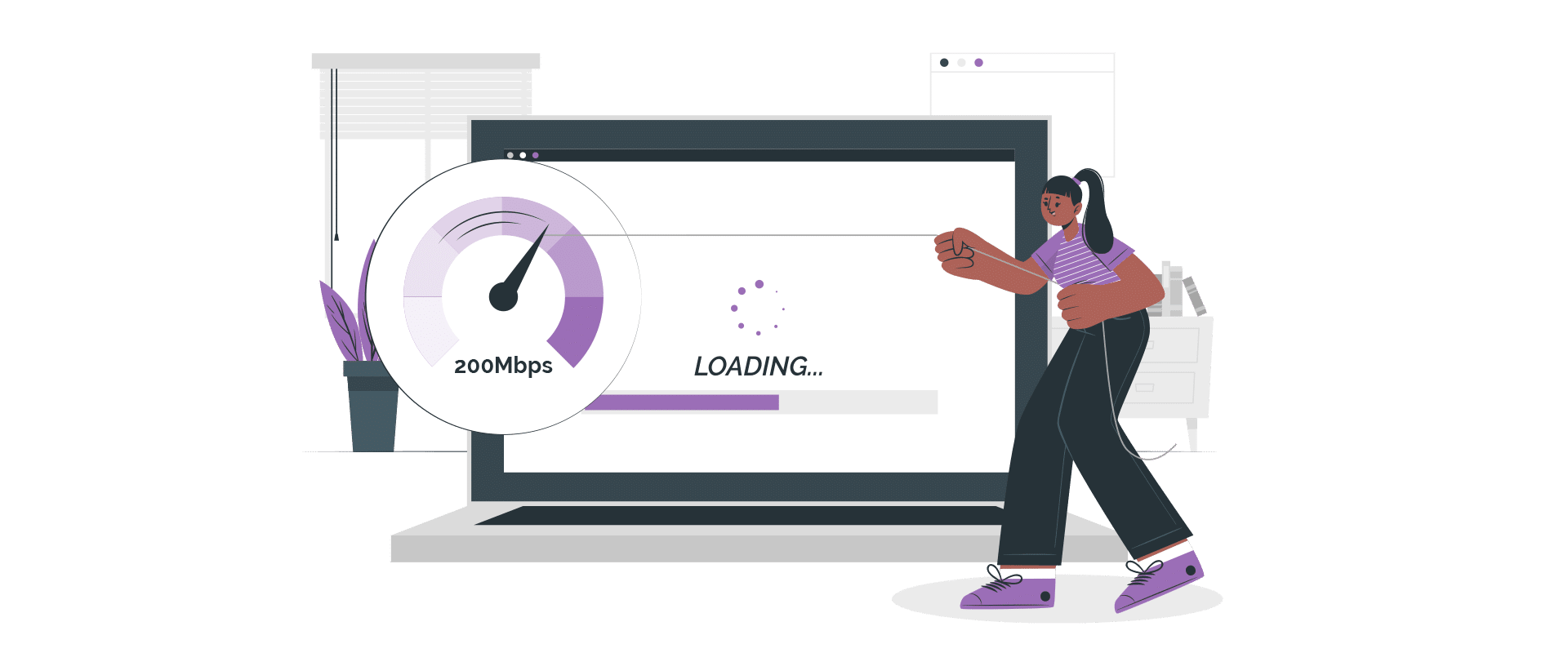Desktop
Mobile
Web Page Speed Test Features & Benefits
When you’re trying to attract customers and keep them coming back, even a few seconds of extra waiting can make all the difference. Your website needs to load quickly for your users and be easy for search engines to index, but this doesn’t mean that fast loading is an option only for new websites. A web page speed test can help you see how long your pages take to load and where they need improvement.
Why is it important to check web page speed?
Web page speed is important because it impacts your website’s user experience and can significantly impact conversions, search engine rankings, and traffic.
- Improved user experience: Visitors who feel a site loads quickly are likelier to return than those who don’t.
- Increased conversions: A 1-second delay in page load time can result in a 7% decrease conversions on e-commerce sites.
- Improved search engine rankings: Google has publicly stated that they’ll use page speed as a ranking factor from July 2018 onwards.
- Increased traffic: Faster websites tend to get more visitors because they’re easier to access on mobile devices, where internet speeds are often slower than on desktop computers.
How to use a web page speed test?
Checking the size of your web pages can help identify potential problems with images or other media files that may be causing slow loading times.
The number of requests on each page tells you how many connections are being made for your site’s content to load completely. This will indicate whether unnecessary elements are slowing down their download time (such as advertising).
Speed is critical for SEO
Speed is a ranking factor, and Google has started to penalize slow websites. You can test your site speed with our tool right above.
If your website loads slowly, consider using a CDN to speed up your website. A CDN stands for Content Delivery Network. They’re just servers that host static content like images and videos from around the world so that users can access them quicker than if they were hosted on one server in one location by yourself or another company that uses their own CDN service.
Page load time is a factor in Google’s rankings
You may have heard that page load time affects Google’s rankings. You may have even seen it written on the Internet, or maybe someone told you in person. Long page speed means bigger bounce rate which hurts your SEO. Optimize your page speed today!
Slow websites lose customers
Your customers need to be more impatient. They want to get in, get what they’re looking for, and get out as quickly as possible. If your website doesn’t load quickly enough, they might leave before seeing what you offer.
The typical user will wait for a web page to load for 5 seconds before permanently leaving it (or at least until next time). If a page takes 10 seconds or more to load–which is pretty common these days–you can bet that plenty of people won’t stick around long enough for it all to come together in their browser windows.
Some pages need to be faster than others
Some pages are more important than others. For example, if you’re a news site and your homepage has a lot of images and videos, it should be fast. The same goes for e-commerce sites with many products and services listed on their homepages–you want those pages to load quickly so users can see everything at once instead of waiting for each item individually.
Some pages are more complex than others. Suppose you’re building an interactive game or something similar.
In that case, many scripts will likely be running in the background so that players can interact with different parts of the game world (like moving characters around). This means they’ll take longer than usual because they need extra processing power from both your computer’s processor and its memory–which means waiting longer while those processes finish loading before being able to continue playing!
People need to be more impatient with slow websites
If your site takes less time to load, visitors will abandon it and go elsewhere.
To keep your users happy and engaged, ensure your website loads quickly. Visitors will not wait for pages that take too long to load; they’ll leave for another site that doesn’t make them wait so long. In addition, Google has confirmed that speed is an important factor in search engine rankings: if a page takes too long to load (or fails), Google may penalize it by ranking it lower than its competitors who have faster loading speeds.
Mobile users are even less patient if your site is slow to load. Mobile internet users are more likely to bounce from a website if it’s slow than desktop users, and they’re also less likely to return to that site in the future. This can be bad news for SEO and costs you money and customers.
Web page speed is important, so test your web pages and track your changes over time
You can use a web page speed test to find out how fast your web pages load and compare your site’s performance with other sites.
Use these tools to test the speed of each page on your site, then track changes over time as you make improvements.
By using this tool, you’ll get a good idea of how fast your pages load and what kind of improvements could be made.
Want to optimize your webpage speed and rank among the first in your business?
Contact us today for a free 30-minute marketing audit!



